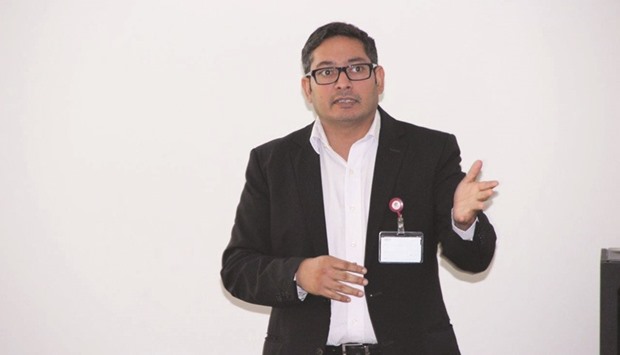Qatar University College of Medicine (QU-CMED) hosted a symposium ‘Flow cytometry-based phenotyping – Evolving applications in healthcare and research’.
The event highlighted the recent developments and various applications of flow cytometry in clinical and research use.
The symposium brought together clinicians and researchers from local healthcare institutions to discuss and share their knowledge, ideas and expertise on the most recent updates in flow cytometry-based phenotyping.
“By using florescent imaging, flow cytometry is a technology that allows us to analyse a single cell or particle in many dimensions - growth rate, metastasis, maturity, capacity for killing tumours and other characteristics,” said Dr Farhan Cyprian, assistant professor of immunology and cell biology, CMED.
Although the technology has been available for about two decades, its applications have been expanding exponentially in recent years which promises advances that could revolutionise personalised patient therapy, such as genetically-informed targeted treatment for cancer, autoimmunity, transplantation and
cardiovascular disease.
Attendees included Sidra phenotyping core lab director Dr Jean Charles Grivel, Interim Translational Research Institute (iTRI) manager Dr Michal Kulinski, and Weill Cornell Medicine - Qatar flow cytometry lab supervisor Aleksandra Liberska, as well as CMED
faculty, students and staff.
The programme agenda included updates delivered by CMED assistant professor of immunology and cell biology Dr Farhan Cyprian, QU College of Pharmacy assistant professor of Pharmacology Dr Abdelali Agouni, Sidra medical director of Deep Phenotyping Core Dr Jean Charles and senior scientist Dr Haissam Abou Saleh, Hamad Medical Corporation consultant and assistant chair of laboratory medicine and pathology Dr Mohammed Yousif Elkhalifa, and iTRI senior scientist Dr Fayaz Ahmad Mir.
QU vice president for medical education and CMED dean Dr Egon Toft said: “The College of Medicine is committed to bringing together practitioners, researchers and students through various platforms including events like this one to exchange knowledge, advance collaborative synergies, enrich their experience, and ultimately improve patient care.”

CMED holds symposium on flow cytometry
